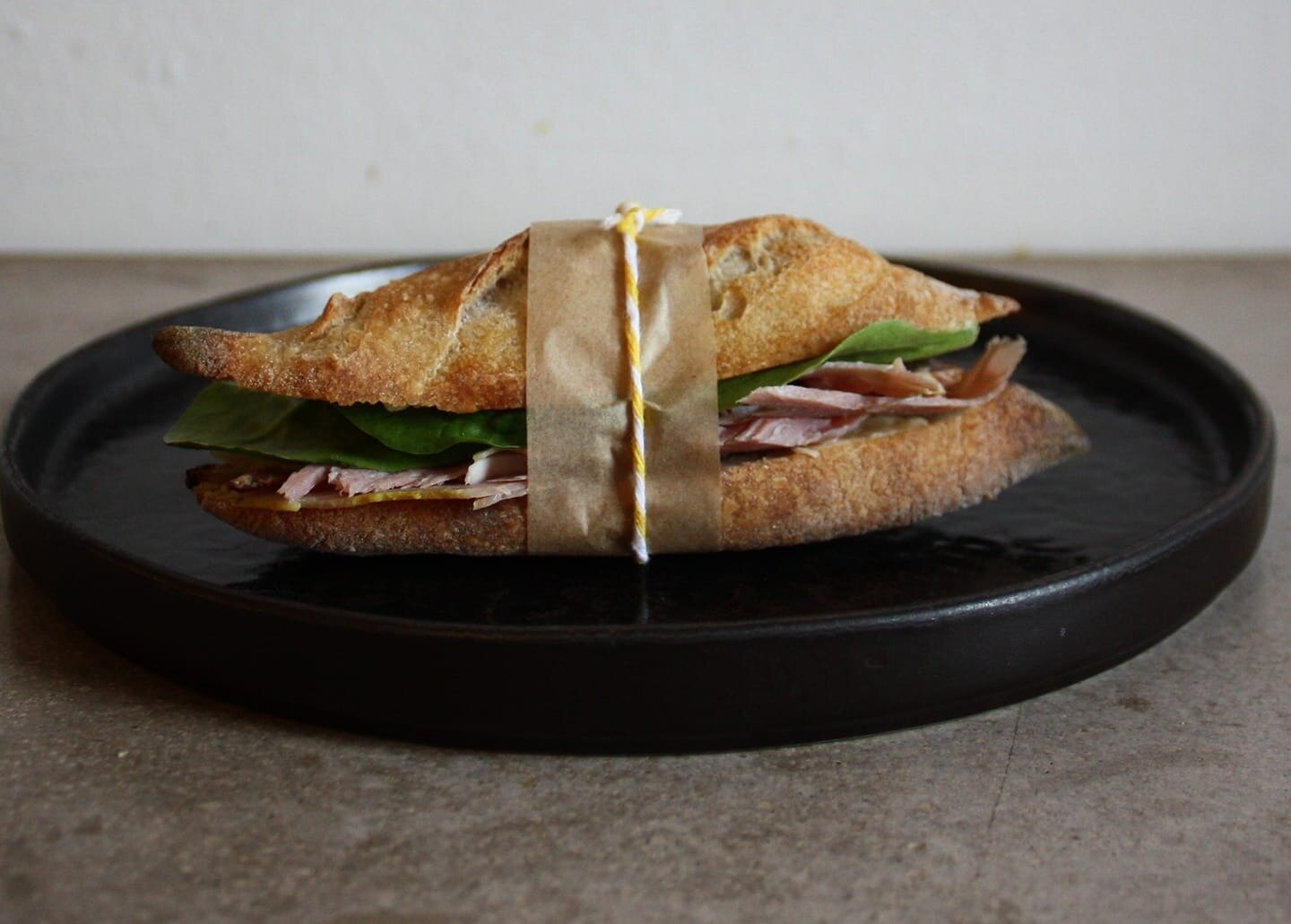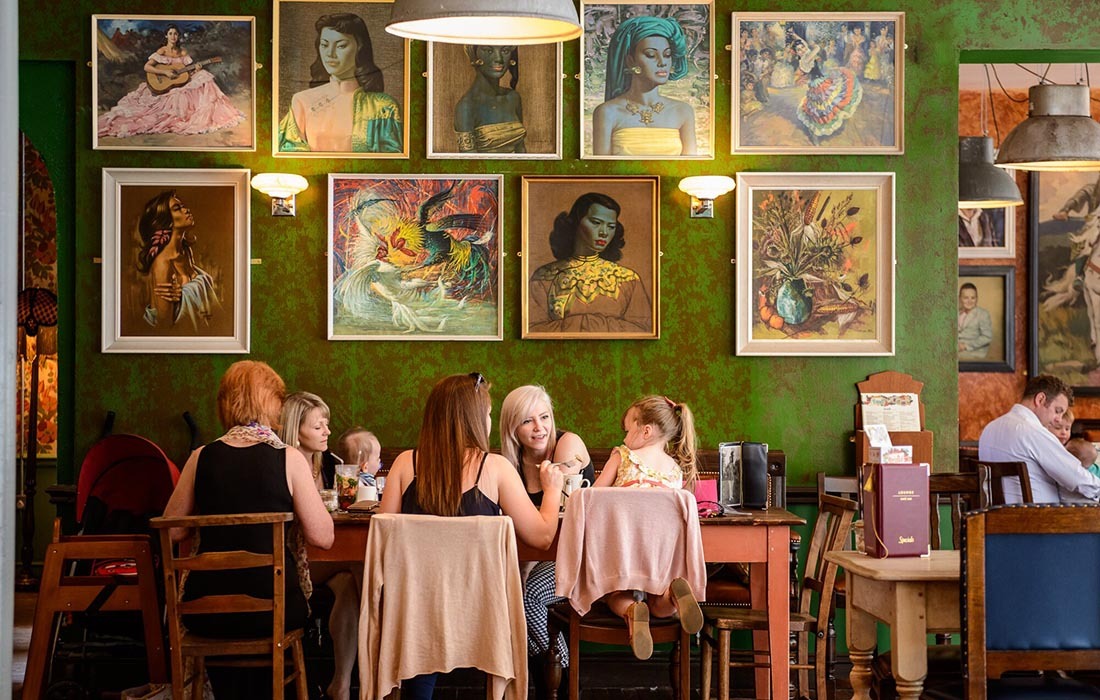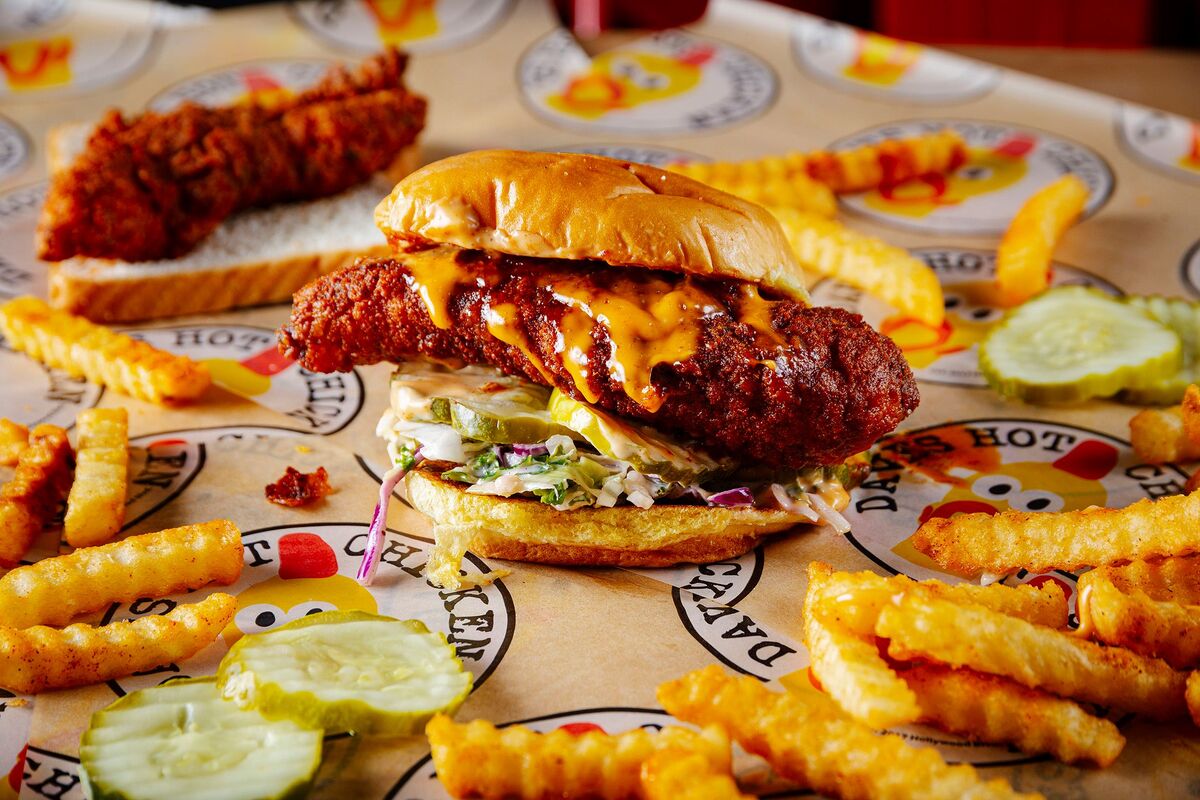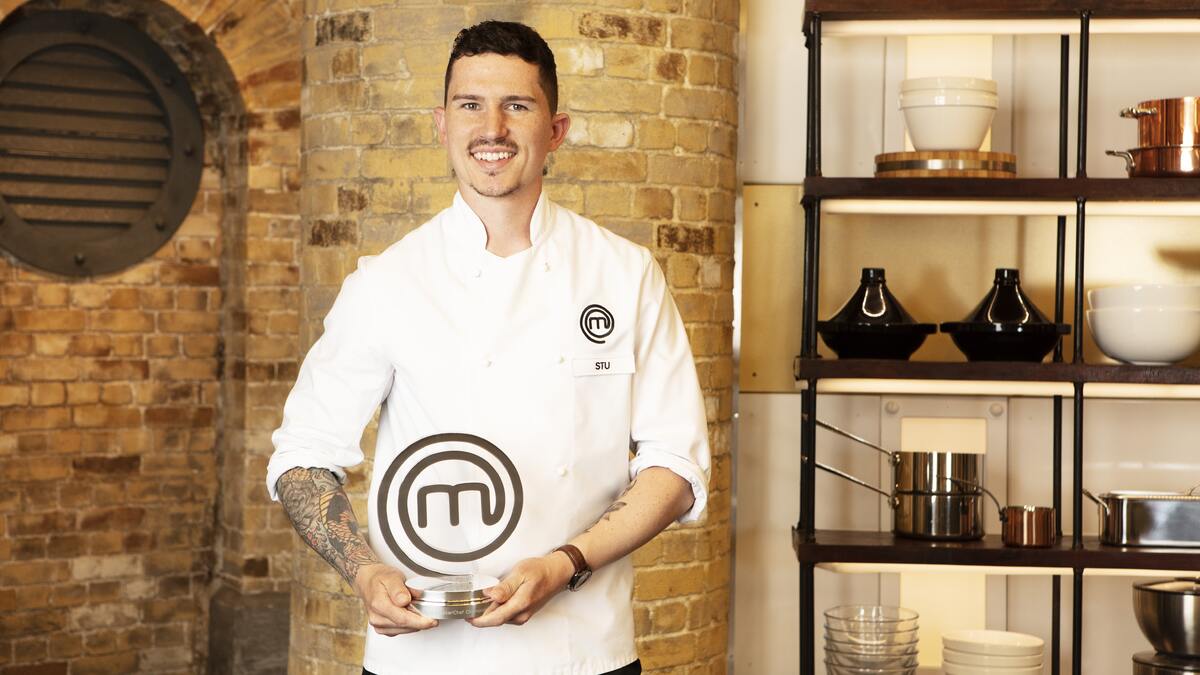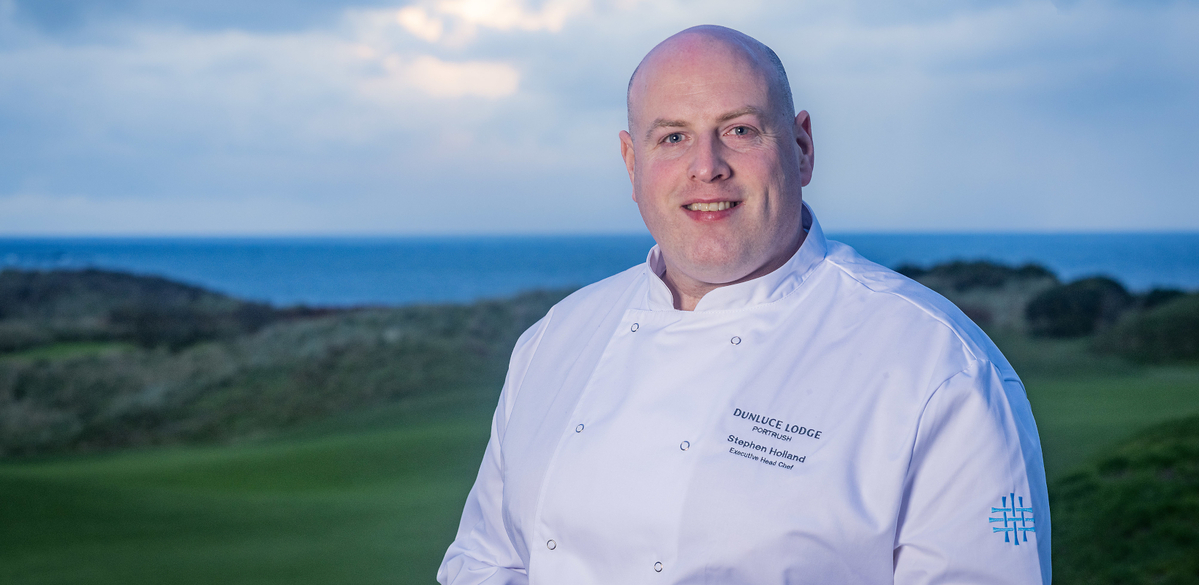Reviews: Afternoon Tea by Rose leaves Gaby Soutar wondering if founder Rose Gregory is “genius or magician"
Afternoon Tea by Rose, available in Leith and Edinburgh, leaves Gaby Soutar of The Scotsman wondering if founder Rose Gregory is “genius or magician”
I love the idea of a takeaway afternoon tea, so you can pace yourself and pay appropriate attention to each element.
We each had an aerated wad of Company Bakery dukkah-sprinkled focaccia, which was topped by a generous blob of rustic and garlicky hummus, as well as fingers of ‘Nduja, and a smear of lipstick red harissa. It was so much burlier and better than a cucumber bap with the crusts cut off.
The demi baguette, with each end pointy like a waxed moustache, was filled with East Coast Cured fennel salami, and the meaty-ness was lifted by a sunny tang of cured tomatoes as well as sun-dried tomato mayonnaise. This pièce de résistance was sealed neatly shut with a square of brown paper and yellow striped string.
One of my low rent pleasures is Mr Kipling’s Fondant Fancies. Rose’s take on these were a sophisticated take to assuage any shame. The apricot, orange and almond versions were, inside and out, the pastel shade of a My Little Pony. They were draped in icing and, in the central reservation, was a lush cream. Eat your heart out, Seamus Kipling.
Another take on retro favourites was a beurre noisette bourbon biscuit. You took a bite, and salted caramel, along with a rich and silky dark chocolate crémeux squelched out the sides.
Cake number three was the blackberry curd tart, with a perfect pastry and a dramatically dark and jammy filling. On top, there were two tiny meringues and a white chocolate coin, stamped with Rose’s logo.
I don’t know how she does all this solo. She could possibly be a genius or a magician.
Price: meal for two, £50. Score: food 9/10; ambience: 8/10

The Observer’s Jay Rayner is “delighted” to have found Land in Birmingham
What occurs to me early on in my terrific lunch at Land, a small restaurant tucked away in the sort of Victorian shopping arcade in Birmingham that Pevsner wrote about, is how many clichés are still present in non-meat cookery in so many British restaurants. And how many of them are completely absent here.
His [Adrian Luck’s] menu of almost entirely vegan cookery is short – just three choices at each course – but it should be filed under thrilling.
There are crescents of roasted onion squash the colour of a setting sun, on a bed of still-nutty Puy lentils, bound by a mustardy dressing tangled with roasted red onion. What makes it sing is the addition of crisp lentils, perhaps deep-fried, to give it texture.
For a main course, a chunk of sweet potato has been roasted and partnered with a deep and sultry mole, that classic Mexican exercise in controlled burning used to produce a sauce full of spice and toasty dark-chocolate notes. There are whorls of avocado purée, and petals of the sweet potato skin, deep-fried for crunch. In another dish, sautéed king oyster mushrooms come on a cassoulet of borlotti beans lubricated with a little cream, the only dairy in the whole meal. The plate is topped with lacy “carbon tuiles” looking encouragingly like something worn by the women painted by Jack Vettriano.
With all these descriptions I will have missed a detail. I will have missed an ingredient or a moment of wizardry, because so much is going on. Adrian Luck is in complete control of his ingredients. It’s why I wish I could be just as enthusiastic about the desserts, but I can’t. Non-dairy creams can all too often have a musty, cereal back note, especially when sweetened. That’s what happens here in a sweetcorn tart with blackberries.
I am aware that describing a restaurant like this as a find, when it’s been there for three years and always knew exactly where it was, might be a little insulting. But I can say that I’m delighted I’ve now found it. You should find it, too.
Price: two courses, £20; three courses, £26; five-course tasting menu, £35; wines from £29
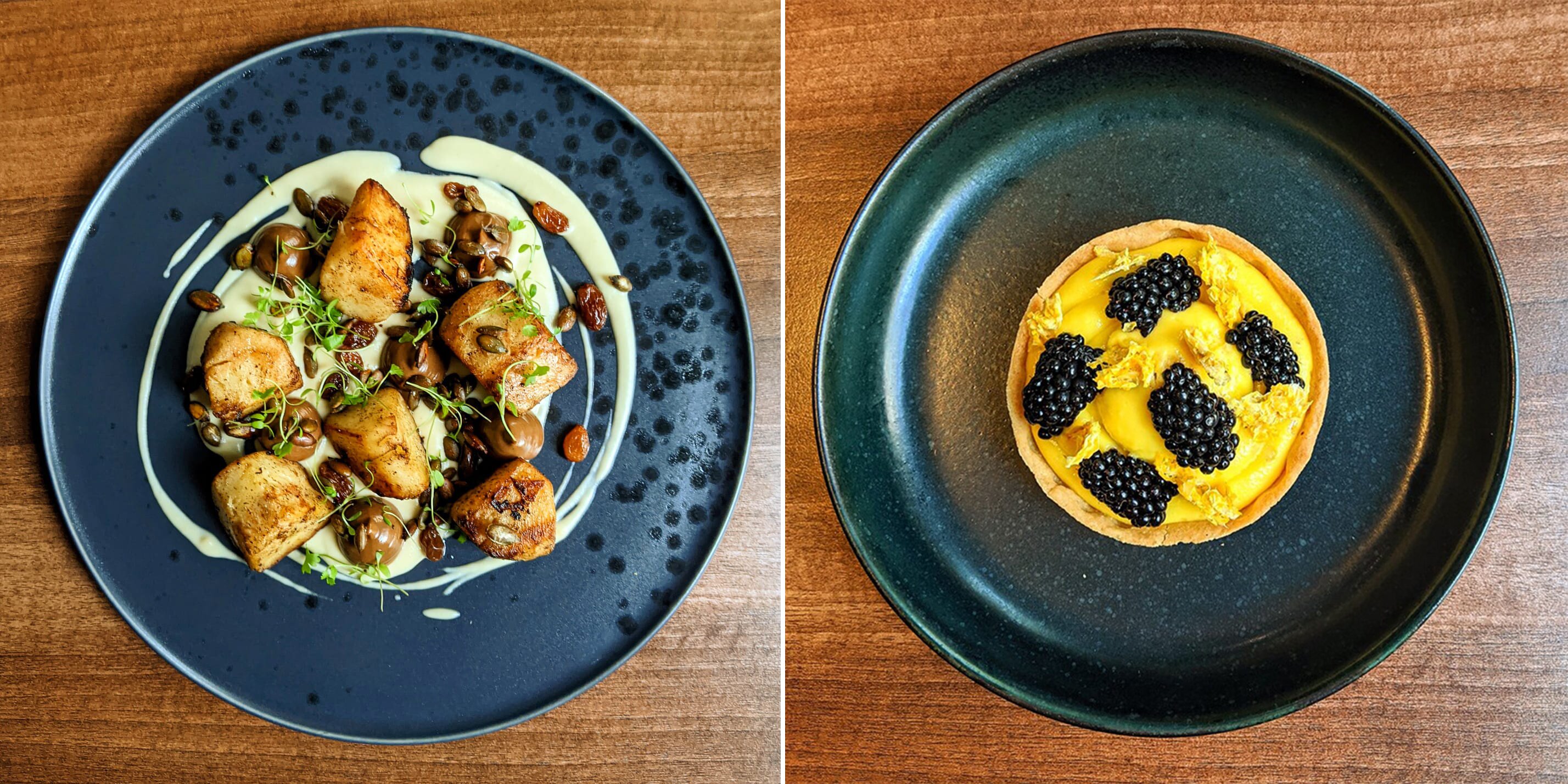
Fiona Duncan of The Telegraph is thrilled to feel the optimism of the Mitre, which sits opposite Hampton Court Palace in Surrey
This is, frankly, thrilling. We are still caught in the worst crisis that British hospitality has faced and here I am in a new hotel that brims with optimism and a bright future.
You’ve either got it or you haven’t in the hospitality game. [Hector] Ross, who was brought up in St James’s Palace because his father was a senior member of the royal household, has got it. He knows that generosity is key (sensible room rates, a glass of English wine on arrival, complimentary cookies and King’s Ginger liqueur, fresh flowers, Bramley bath products).
No two bedrooms are the same and they are all lovely: homely yet vibrant, with a mix of old and new furniture (much of it came with the hotel), paperbacks chosen by [hotel manager Claire] Fyfe, free-standing bathtubs, charming café curtains and the prettiest of mirrors.
The Mitre is substantial. It has two restaurants, a lovely events space, the orangery, a spacious terrace perfect for afternoon tea and two wooden decks right on the water.
As for the food, I never thought I would write that crispy cauliflower popcorn was my favourite dish ever but I just have, and everything else was almost as good.
Rooms, all different, are named after its occupants, and there are plenty of other nods to the all-important past. Bottom line: the Mitre has got it right and right now, that’s thrilling.
Price: doubles, from £195 a night
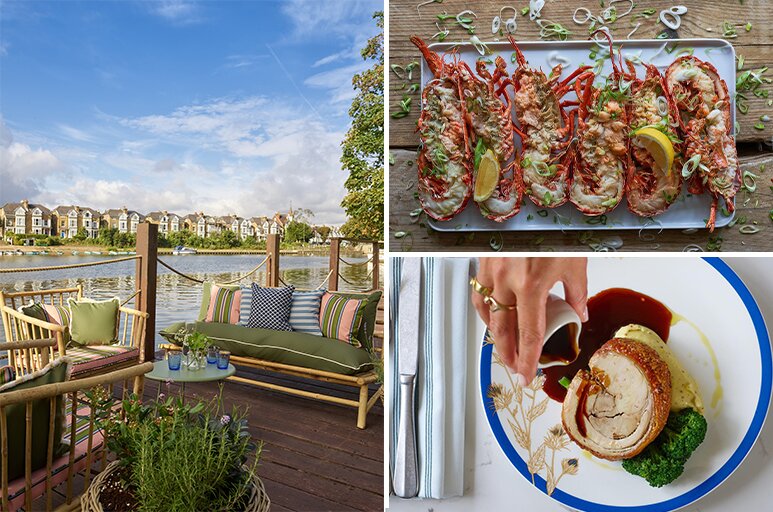
Jimi Famurewa of the London Evening Standard finds himself wanting to linger for hours at Caribe’ in Brixton, London
I had long confidently assumed that – as with lots of other immigrant cuisines – if you really wanted to understand the acute thrill of Trinidadian doubles, fried dumplings or curried goat, then a home kitchen or a deceptively knackered-looking neighbourhood takeaway with half the menu mysteriously missing was the place to find it.
Or, at least, that was what I thought before I went to Caribe’: a tiny, joyous Brixton restaurant that delivers both the expressive, diverse potency of Caribbean food and the sort of atmospheric sunshine that makes you want to linger for hours.
St Lucian beer and stridently fiery ‘hot peppa nuts’ got us off to a banging start. Then came saltfish accra fritters; ravishingly warm, pale-orange discs flecked with Scotch bonnet and anchored by a low, subtly marine funk. And, well, from there it was just a building series of highs – the curry goat with luscious, deeply spiced meat and a flaky ‘buss up shot’ roti; thoroughly likeable sides of slaw and thick-cut fried plantain; whole sea bream, steamed to fragrant softness and served in a nuanced, pimento berry poaching liquor – until we shared an inspired, Snickers-ish Supermalt ice-cream with salted peanuts.
There was a moment, as I bit into a fritter and Dawn Penn’s ‘You Don’t Love Me (No, No, No)’ rang out of the speakers, when it felt like all the giddy contentment of an idealised day at Carnival had been hooked to my veins.
The Sunday Times’ Marina O’Loughlin is enchanted by “cleverness with fine ingredients” at the Black Bull, Sedbergh, Cumbria
You think you know what you’re in for with this kind of place: a fine pie, perhaps, some decent fish and chips, well-kept ales, maybe a curry night and a quiz. A good community all-rounder. And yes, the Black Bull fulfils this role. But it’s also so much more.
When our snacks arrive I worry I’ve got excited too soon: they’re perfectly good – chunks of cauliflower, mildly Thai-spiced with sour cream dip, and some blowsy wild halibut beignets with an assertive garlic mayo – but are more boozing food than fine dining. Nothing wrong with that. But then things get a whole lot more interesting. Starters bring wild rabbit: perfect pink lozenges of its loin and a slump of slow-cooked leg meat interleaved with baby gem, roasted red pepper and the unexpected crunch of nuggets of pork crackling. And celeriac roasted into a fondant with the curious freshness of “preserved asparagus” – a sprightly pickle – and the pop and crunch of puffed wild rice and toasted cobnuts: spring and autumn together. There’s no tiresome grandiosity, just cleverness with fine ingredients.
Then a flawless wellington of wild venison, as glossy as a cookbook spread and tasting as gorgeous as it looks. And breast of gamey Lakeland mallard with a croquette of the rest of the bird, an artistic arrangement of classically “turned” vegetables on a shiso leaf of electrifying intensity.
Price: meal for two, £117 without service charge
Keith Miller of The Telegraph finds “personality and charm” at Pitanga in London’s Hammersmith
We had what might be considered an entry-level Nigerian feast, though it worked for us: beef flank suya, a canonical soupy stew called egusi and “native rice”, a kind of jollof billed on the menu as “Nigerian biryani” (we asked for both soup and rice with goat, because we both really like goat, though other options – including vegan ones – are available); braised honey beans, plantain chips and a ball of eba, a comforting, pillowy mash made from cassava; two aqualung-sized Star beers; and a bottle of what I think (it was getting dark), was Oyster Bay.
Suya is coated in a mixture of ground peanuts and spices before grilling, so you don’t get as much charring of flesh and fat as you would on souvlaki or arrosticini or whatever, but the juices of the meat are partly absorbed in the spicy rub.
Egusi [was] thick and hearty, almost fluffy in texture, gilded with oil, deriving massive umami from salt fish and smoked crayfish, with big, delicious chunks of sweet, dark goat meat lurking within.
The rice had a similar surf-and-turf energy: I liked the textural similarity between flaky smoked haddock and long-cooked goat, which fell off the bone in rich, slightly leathery chunks.
Pitanga (the name denotes a pretty tropical fruit, fluted like a tiny red pumpkin) is a great neighbourhood restaurant, a warmly welcoming place that’s full of personality and charm, and even a kind of wit.
Score: 4/5. Price: meal for two, £90



